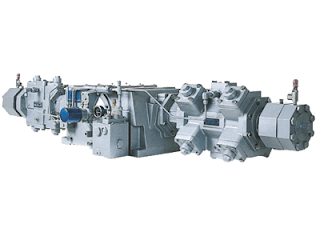High-Performance Compressors and Pumps for LPG and Ammonia Bottling

In the world of industrial manufacturing and processing, compressors and pumps play a crucial role. They are used to compress or pump gases and liquids, respectively, to transport them through pipelines or to store them in containers. In the case of LPG (liquefied petroleum gas) and ammonia bottling, the choice of compressor and pump is particularly critical, as these gases are highly flammable and can pose a significant safety risk if not handled properly. In this blog, we will explore the different types of compressors and pumps used for LPG and ammonia bottling, and their advantages and disadvantages. Market and technology trends are driving changes in the LPG and ammonia bottling industry. As demand for these gases continues to grow, companies are investing in new technologies to increase efficiency, reduce costs, and improve safety. One key trend in the market is the shift towards more sustainable practices. With a growing focus on reducing carbon emissions and improving e...